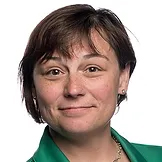
CALI MULLINS – U.S. NAVY
Cali Mullins spent her 20-year career in the Navy solving problems—fixing airplanes, executing emergency management plans and resolving logistical issues—After the military, she went on to work helping homeless veterans struggling with addictions and mental health issues.
“I feel like substance abuse is a big issue for women veterans and it doesn’t get the same amount of traction,” said Mullins. “It’s much easier for men to come in and say they have an addictive issue and receive treatment and it’s okay.”
Mullins, who herself struggled with addiction for years, noted that of the dozens of clients they helped, only a handful were women and many of them conveyed a sense of feeling alone. She said those clients were very happy to interact with her as a woman and as someone who personally understood mental health challenges.
“It’s very hard for a woman to go into a room full of men and say, ‘I have an issue and I need help,” said Mullins. “Women—especially military women—are expected to do so much and fill so many roles and be as strong as men. You almost can’t put yourself in a position where you’re vulnerable, because vulnerability equals weakness.”
Being able to trust those around you and fostering a culture where women don’t feel isolated are two areas Mullins noted are critical for veterans to get—and stay—better.
“Women veterans feel terribly isolated,” said Mullins. “But I can fight to make sure that the women who come after me have it easier and feel more welcome and have that sense of community that we had in the military.”
